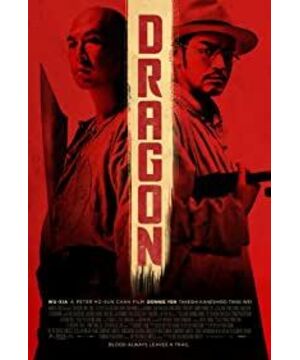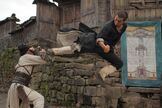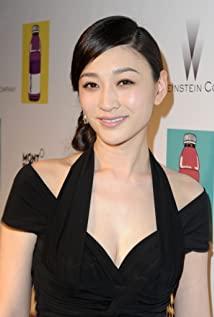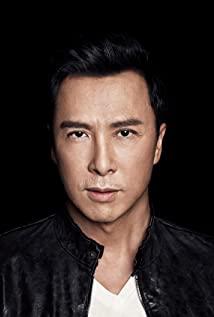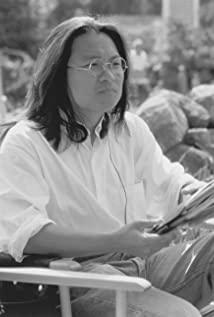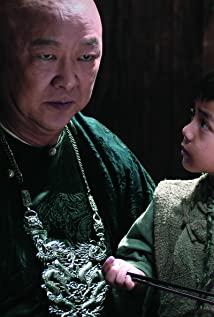PS: The two kids chose well.
42 years ago, Wang Yu was tired of disputes between the rivers and lakes and lived in seclusion. Jiao Jiao was taken away. Wang Yu raised his sword to kill and killed him. He found that Zheng Lei and Chen Xing were suffering.
14 years ago, Donnie Yen broke away from the killer organization and lived in seclusion. Li Ruotong was taken away. Donnie Yen broke and beaten up and beat Tan Zhendong, Mai Weizhang, Jiang Haowen, Lin Guobin, and it was cool.
Almost earlier, Jet Li escaped from the killer organization and lived in seclusion. Karen Mok was taken away. Jet Li disguised and beaten up some ghosts until Long Gang, so cool!
I just want to say that these stories have always been like this. Everyone loves to watch wild wolves pretend to be pigs and eat tigers, watch prodigal sons turn their heads and give up secretly, love to watch the master's skills in order to control the girl, love to see absolute bad guys being tortured or killed in seconds, and watch the powerful evil rout in front of the trembling front. Regardless of the far effect, only the explosion of the martial spark, the injustices known on the shoulders seemed to be slightly relieved.
This game is repeated year after year. The screen restores and confirms the unique setting described by the Chinese in the text with a certain tacit understanding, and then repeatedly deduces it, seeming to turn these violence and will into a piece of history. We began to believe firmly after doubts, and continue to pass on in our yearning. Amid the clash of joints and the splashing blood, these Star Dou people who have never seen a hero seem to be proud. Unofficial forces punish evil, promote good, rob the rich and help the poor, is the true theme that has not changed in any age. Whether there is singing or not, it's the same.
The big frame of "Martial Arts" is still set in this way.
The only difference was that Chen Kexin put in someone who did not belong to this world.
Xu Baijiu.
He is here to provoke annoyance.
Believe in material things, so kung fu is just all kinds of harm in front of him; strictly abide by the law, so human beings are only guilty or innocent in front of him. He tried to doubt, distinguish, and prove like an instrument, desperately connecting cause and effect on paper with all his strength, ignoring his own feelings, and even the powerlessness of the environment. In a film called "Wu Xia", Wu, and Xia-are all being denied by him. Isn't this here to kick the pavilion?
What happened to Chen Kexin?
The most important thing is that Xu Baijiu actually failed to give a negative result. Jiang Wu asked with a cigarette in his mouth, "If the law can't make a person a good person, then what's the use of this law?" He couldn't answer. But he looked at the world cautiously, and forced out the most embarrassing thing in the martial arts world: whether the master should abide by the law in the end. If you want to treat yourself as an ordinary person, then the first thing you should do is to surrender, but why bother, moral masters are in prison, and moral masters are in prison, and moral masters are harming the world. Therefore, related topics have always been similar to Xiaolongnu's menstruation. Wang Yuyan's toilet paper is something that everyone would not think about. bother.
In most of the endings, the police put on their hats and looked in the other direction after the demon’s death. "Have you killed/stolen/set fire? Why didn’t I see it?", at most it was "down" The next time we meet, we must decide the outcome." With the sound of gongs and drums, everyone was happy to receive their lunch.
We don't need reality to tell us what to do, because no one can do it.
But, what on earth do you rely on to evaluate a person as a good person? The narrative at the beginning of the film elaborates on Liu Jinxi's wake up, breakfast, work, and respect for his family and friends. Well, this is a good man with a sense of responsibility. We are soft on him. It doesn't seem to matter that even if his hands were bloody ten years ago, it doesn't matter. But if it is straightforward, it is stated that your friend's neighbor Liu Jun is an alien killer. Putting yourself in your place, would you forget the social silly smiles and start persuading your friends to move? The practice of Keigo Higashino's "Badness" naturally has a foundation.
Don't believe your judgment and choices. Even your body is deceiving. Happiness comes from endorphins, and love comes from dopamine. So Xu Baijiu didn't look at why, but only looked at the facts of arteries, blood vessels, and nerves. House also said that patients would lie. The one who won't lie is their trash can.
So, maybe it’s true that this Johnny Depp-like stunned Takeshi Kaneshiro who occasionally causes a bit of laughter is indispensable. If it is arrogant like Liu Dufeng, if it is cold like Javert, even if it is handsome as a flower, Xu Baijiu’s persevering pursuit will intensify. Uncomfortable reaction. But even so, the character's own spiritual contradiction, imperfect logic of action, and lack of motivation have brought great destructiveness to the town in this story and the structure outside the story. For example, Liu Jinxi's trust in him is actually Liu's own efforts to promote goodness, but it actually led to worse results. From a utilitarian point of view, should we be more cruel next time? This incomprehension comes from the principle Xu Baijiu insists on, which is incompatible with this world.
As for the function of the entire plot, his existence is necessary and very weak. If you want to make up a story, Liu Jinxi can have countless reasons to show his horse's feet and be noticed by the earth evil. Without showing his horse's feet, the earth evil is easy to find. In short, Tang Wei was taken away, and then Liu Jinxi killed him. Cool.
So no one could see that Xu Baijiu was Chen Kexin himself, and he did this almost offensive thing because
he didn't believe it.
"Chivalrous, just like dinosaurs, we know there are, but no one has seen it."
Because of unbelief, and insisted on expressing such unbelief. So he tried to explain with Takeshi Kaneshiro next to the two people who were fighting, interfering with the audience's adrenaline secretion, and stuffing a set of specious theories with CG images. Therefore, even if Takeshi Kaneshiro could conclude that Liu Jinxi was a good person through all the others, he would still be indifferent to tell lies, and still have to chop off the sickle. Chen Kexin has always been adhering to the idea of shooting whatever the audience sees, but he has never given up on himself. These doubts, these persistence in trying to change, these lingering between understanding and incomprehension, make the movie fall into a strange atmosphere. This is the main reason why some people feel that the opening is flat, and others feel that the climax is nonsense.
Wang Yu seems to have complained too, playing too little.
The previous suspense and reasoning made everyone refreshing. The problem is that the audience knows the truth of the reasoning earlier than Xu Baijiu; the audience does not care about the result of the reasoning. Where to stand?
With Donnie Yen, how can we not fight. However, from the very beginning, "Martial Arts" did not presuppose a problem that can be solved by just playing.
In the classic structure of "the master of seclusion forced to re-emerge", which has been photographed hundreds of times, these new additions are like dripping water into boiling oil. Even if Chen Kexin worked hard to create a simple image style, photographed the folk customs of Tengchong, photographed a lot of intangible cultural details, and the trick meat was peeled from the old shell, the story still cannot be unified.
At the deepest core, the power of this movie is completely different from the various powers that we know about martial arts films. Emotions close to carnival, close to dancing limbs, the spring is pressed to the shortest bamboo and the bamboo is pulled to the most curved rebound, which is the subject of censorship in "Martial Arts".
Don't be fooled by the so-called nostalgic symbols. This product is basically a two-way idea and attitude with "Beat the Ring".
So I don't care at all whether the so-called microscience in this movie successfully explained martial arts. What I admire is the persistence it tries to explain, and even its powerlessness. Seriously, this is not to say that Chen Kexin did not do well, and that he might be able to do better things for himself. It was originally the Tower of Babel built on floating sand. Explaining the result is nothing more than a gimmick, and as long as it is done, someone will pick the wrong one. How many people really thought about where the second line of Ren and Du was really wrong? This is just like the brocade box in the cliff, the tall man in the valley, the strange beast in the jungle, and the strange grass on the snow-capped mountain.
The start of Masami Chada's "Saint Seiya", the Bronze Ten Challenge, will explain how many tons of Ursa Major's arms are equivalent to, and then say that Pegasus kicked out a lot of legs at this moment. Please watch the video. As a result, the Greek gods appeared one after another, and the five-hundred-year holy war was repeated again. For the love and justice of the world, the young people threw their blood around the goddess. You instruments for calculating physical fitness, go ahead and play. One of the romances of Infinite Fight is an invisible system that does not require serious explanation.
So this is actually a story about faith, and Xu Baijiu is almost trying to explore this world like a martyr, risking being wiped out, and facing the gaze of being questioned by colleagues. He didn't even know how far he could do it. Facing the advice of other hunters to "let them kill each other", his face was distorted and shouted "What's the use then?" At this moment, he was really not the one. People just represent his little persistence.
Lin Xue crawled forward on the ground little by little, "The swindler who was consigned by the brothers died under a thousand blades, and the one who helped outsiders to rob the brothers' finances will be wiped out by five thunders."
Xu Zhu scooped a spoonful of water, "Buddha views a bowl of water and 84,000 insects. If you don't hold this curse, you will be like eating the flesh of all living beings. Bound Sippolo, Manisha."
It was Takeshi Kaneshiro who walked step by step in the rain. Going forward, "Whoever confuses my brother by outsiders will kill him according to his name; if a brother confuses my brother, he will kill him according to his name."
Chen Danqing's "Fuck! It's the most important thing to live" in their eyes.
It's a pity that drama needs a climax after all, and the bad guys will come after all.
The two people's self-sustained theoretical research did not give in at all, but they had to finally return to the path of jointly fighting the enemy. As a result, and because of this, the film itself was obviously chaotic.
Many years ago, in the netease Zhou Liming's message board, Qi Ai and Nozick, now the transformed master Ryazan, discussed whether "City of God" was good or not. The key point is also that the director actually maintains a complicated and ambiguous attitude towards Brazil, the birthplace, and directly incorporates this complicated emotion into the film. So should the audience pay for the finished product that the director actually didn't think clearly, or just tried to think clearly in the movie?
As a result, while Xu Baijiu was still alive, his clone looked at himself in the rain and left tears. According to the previous foreshadowing, it can be considered that he has recovered his feelings, but what on earth is he crying? Did Long Mao finally find that his hard work in this movie is destined to come to this desperate situation?
Xu Baijiu must die. If he does not die, he still has to arrest Tang Long.
Can’t help asking, who is the protagonist of this movie?
All the dramatic issues, all the temperament issues, all the style and connotation issues, the late appearance of the villain, the meaningless issue of suspended animation, and the issue of many details that are suspected to be disconnected. In the final analysis, this Come. It stands to reason that Donnie Yen, as the core of the classic story, is on one side as a commercial guarantee, but Takeshi Kaneshiro, as the director's stand-in, as the author's reluctance, is on the other side.
In the end, what Chen Kexin could do was to insist on laying down the thunder.
Forty-four years ago, Zhang Che made Wang Yu, who appeared to be the second male number one, to die in "Broken Heart Sword" and made the male number one Qiao Zhuang stand aside in embarrassment. At that time, he might not know what he really wanted. But he must know what he doesn't want, he doesn't want a young man in white clothes to be handsome, men and women galloping across the rivers and lakes. What he wants is male power after depression! What I want is burst! Shirt! What is needed is power! exhaust! and! Death! What I want is blood! tears! As a result, we finally have some of the characteristics of the martial arts world we see today.
Let me say it again. I personally like this movie very much. It is naturally not Chen Kexin's best director's work, not the best martial arts work, let alone excellent anti-wuxia works. It just allows me to clearly see a person's determination and doubt, talent and limitation, anger and compromise, creativity and calculation.
Besides, there was a moment when Ayu lowered his eyes after learning the truth.
Worth it.
The meaning is confused, and the words are not expressive, just because of instinct to get closer. I like Stephen Chow's "Kung Fu" very much, but if I were to choose, I would rather watch less of a "Kung Fu"-like rambling, and then watch a "Martial-arts" like walking in the dark.
Of course, if you can watch it all, you won't change it to a village chief.
View more about Dragon reviews


